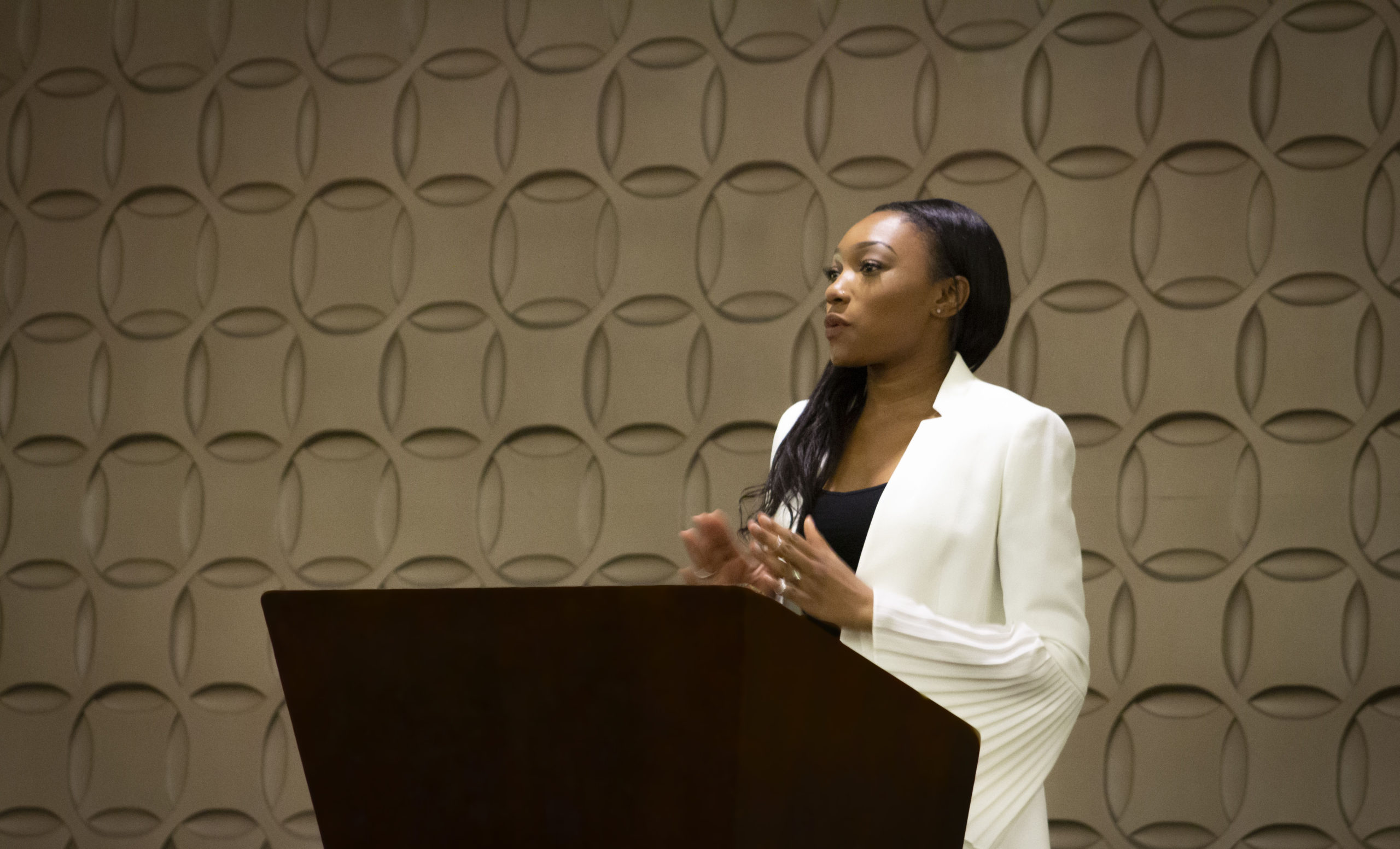Kelsea Médard is the founder of Grow By Three, a consulting firm working to make society and workplaces more equitable. She’s a passionate and inspiring advocate and leader, and we asked her about what we as business owners should be keeping in mind when it comes to DEI in our own organizations, and about what entrepreneurship has been like for her.
We always want to start by having you tell us what is your business and when did you get started?
I started Grow By Three in 2019, after dreaming about it for about two to three years. Grow By Three provides professional development services to individuals hoping to access new opportunities, and organizational development services that help make company cultures more engaged, diverse, equitable, and inclusive. Aside from our consulting services, we also provide a mentorship program to students and professionals, and networking events to foster professional growth.
We know DEI is important, but explain to us in your words why DEI is so important.
Diversity, equity, and inclusion (DEI) is so important because at the core, DEI is deeply connected to our concepts of social justice. We have to evaluate the levels of DEI that exist in an environment so we can assess whether there is an equitable distribution of opportunity in that particular space.
We’re all business owners here, and DEI is something I bet many of us have thought about more in the past year than ever before. For someone who wants to be sure we’re doing what we can to foster an inclusive workplace, what is one thing that you would say all businesses should implement?
At baseline, fostering an inclusive workplace relates to how people feel within the organization. Inclusion is linked to the ways that an organization creates opportunities to promote belonging and strengthen professional, interpersonal connections among employees. All businesses can stand to take a step back, and assess whether they are creating those types of opportunities for everyone within the organization.
Are there any mistakes you see companies make when it comes to DEI?
Some of the biggest mistakes can occur when organizations refuse to address a problem at its root, and only focus on managing the symptoms or effects of the problem. For example, pouring money into recruitment of diverse professionals, without first trying to address internal and unique problems the company may have related to retention.
What does true allyship in the workplace look like?
True allyship in the workplace shows up in the form of consistent, demonstrated action that amplifies the voices and needs of those who are marginalized. It looks like genuinely listening and learning to people who may experience life differently than we do, as opposed to telling them how they experience it. True allyship is reflected in zero-tolerance for any form of bias or prejudice, and refusal to accept discrimination when we see it happening. True allyship can feel uncomfortable sometimes, but that discomfort is powerful, and can change lives.
It seems like the issues around DEI are finally getting the much needed attention they deserve and things we should have been thinking about and discussing all along are getting talked about more right now. Do you see any trends or have any predictions for 2021 when it comes to hiring practices and fostering DEI in the workplace?
My prediction is that many organizations will be thinking more deeply about hiring practices and fostering DEI in the workplace, but I am hoping that leaders take those thoughts and turn them into definitive actions. When it comes to DEI, employee wellbeing is genuinely at stake. The stakes are high, and leaders have to figure out ways to avoid bottlenecks while trying to drive organizational change. That is where consulting firms like Grow By Three can come in and make a difference. Sometimes it takes an external piece to complete the puzzle.

You mentioned that one of the programs you offer through Grow By Three is a mentorship program. Besides a specific program like that (which sounds amazing!) do you have any suggestions on how someone can find a mentor if they don’t have anyone to guide them through a big transition in life or career?
Once you know that you want to pursue a big transition in life, think about who is in your immediate circle, and who might become a part of your circle if you made that initial connection. Resources like LinkedIn, or networking events related to your new goal, can help you find a mentor in record time. But, before reaching out to a new contact, take time to reflect on the specific information you need so that you can be intentional and effective with the questions you plan to ask. Asking the right questions can help you confirm when you have found the right person to assist in guiding you, and can ensure that you are making the best use of the other person’s time.
You’ve made huge strides in your business so far in a fairly short amount of time. Is there anything you know now that you wish you knew when you got started?
Being an attorney really helped prepare me for a lot of what comes with starting a business. I think most of my growth and learning has been in areas related to the importance of being patient, giving myself grace, and developing “thicker skin.” I always thought I was fearless, but running a company requires more fearlessness than I could ever have imagined. In the past, I hated asking for help, but I have learned that knowing when to ask for help – the right help – is a true skill.
Being a business owner can be tough, and we think it’s important to talk about the fact that it’s not all rainbows. What do you do when you are feeling down/hit a snag/feel stumped at work?
I recognize that I have a high tolerance for being challenged, so when I start feeling down, I take it very seriously. I try to examine what could be wrong, and usually the answer is that I am in dire need of a break, or motivation. Sometimes needing a break means that I will turn off work notifications for a few hours, pick up a healthy meal so I do not have to cook anything, or try to get to bed early that evening. If I need motivation, I may seek out my nearest self-help book, watch a quick TedTalk, or listen to an inspirational podcast.
What’s your favorite way to take care of yourself during a busy work week?
My favorite way to take care of myself during a busy work week includes journaling. My schedule is packed, which means that my mind is constantly on the move! Journaling requires me to stop, reflect, and get my heaviest thoughts down on paper (and out of my head). A cup of tea in my favorite mug can make my journaling moments feel super calm.
With such a busy schedule and the demands of running a business all day, how do you disconnect from work at night?
I am still working on the “disconnecting from work” part of life! I often feel tethered to my phone or email because I want to make sure I am supporting team members and clients to the best of my ability. Since work is so important to me, the only way I can disconnect from it is by focusing on something that is also important, like connecting with loved ones. I believe that maintaining relationships is key to living a fulfilled life, so dinner with my partner, or a video chat with family/friends helps me wind down the day.
What’s your favorite part of being the leader of Grow By Three?
My favorite part about being the leader of Grow By Three is the freedom it gives me to make a difference in society while tapping into my favorite parts of myself. My skills as an attorney, entrepreneur, creative, and servant of my community all come out at once, and I love that.
